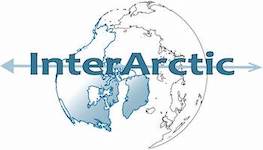The InterArctic project focuses on vulnerability, resilience and adaptation of northern societies facing global change.
The rapid current warming of Arctic and Subarctic climates has already produced many changes in the social, economic and cultural behavior of the populations inhabiting these regions and more changes are expected to come. Few of the changes are considered to be positive or not disturbing the fragile balance between human and the environment.
The study area includes Eastern Canada (Nunavik, Nunavut and Nunatsiavut) and Greenland (South and North). Around 1000 years cal. AD, some of these areas witnessed the meeting between European farmers coming from Scandinavia, and hunters-fishers arriving from Beringia. Today, these two lifestyles are still coexisting, with farming in South Greenland, and hunters/gatherers/fishers in Nunavik, Nunavut, Labrador coast and Greenland. Within these study areas, our aim is to document 1000 years of interactions between Thule/Inuit people, Norse settlers and their environment, through an interdisciplinary approach exploiting different kinds of natural archives. The use of pedo-sedimentary archives (lakes, peat deposits, cryosols, anthrosols) and palaeoenvironmental multiproxy analyses will highlight landscape evolution, climatic and anthropogenic forcings upon ecological processes. Archaeological sites, and more specifically archaeological soils, ecofacts and artefacts, will give precious information about the nature of these interactions. The complementary anthropological/cultural approach will focus on human memory, perception, practices and prospects of environmental and social changes, archaeological heritage and past settlement location choices, of six communities in Greenland and Canada.
The issues will be explored in an interdisciplinary work through open interviews and co-design workshops bringing Inuit elders and youth together with project researchers. Coproduced knowledge (blending traditional and scientific), including Inuit visual documentation of the community changes and the writing of science fiction narratives, as well as cognitive maps (Inuit internal representation), will then be shared through innovative educational projects such as an interactive web platform designed to share project results, involving local partners in Greenland and Canada as well as French secondary schools and universities.
The launch will take place over two days, the first day is open to the public and the second will be a workshop between the project members.
February 5 and 6, 2018 from 10:30 am to 6 pm (OVSQ, amphi Mégie)
On the program for Monday, February 5, 2018:
9h: Welcoming participant
10h30: Chantal Claud (vidéo), director of the OVSQ and member of the Arctic network : OVSQ research activities.
10h45: Mateo Cordier, deputy director of the CEARC : the arctic research at the CEARC.
10h55: V. Bichet. Anthropogenic landscape: an insight from lake record at Igaliku, southwestern Greenland.
11h10: David Gremillet. The IPEV Adaclim project.
11h30: Laurent Millet et Valérie Vernaux : Climate and anthropogenic impacts on lake trophic functionning : carbon sequestration and transfer in food webs.
11h45: Damien Rius : A 2000yrs record of fire in South Greenland: Norse or Climate?
12h00: Mathieu Thivet : From aerial survey to digital archeology : photogrammetry and ALS (Airborne Laser Scanning) applied to landscape analysis and archaeological data recording.
12h15: Alain Sarkissian, co-directeur du master Arctic Studies et membre du Réseau Arctique : The online interactive platform of the EduArctic international project.
12h30: Lunch
14h00: Jean-Michel Huctin et Karine Weiss : Knowledge Coproduction between scientists and indigenous peoples: pioneering studies, recent research and the InterArctic project.
14h25: Fabienne Joliet et Véronique Antomarchi : Photographs and lived territories in Nunavik.
14h45: Yann Rantier : Cartography and GIS.
14h55: Françoise le Moal : Structuring and managing numerical data, choices to be made.
15h05: Dominique Marguerie : Long Term Environmental Changes and Human Activity in Nunavik. (LOTECHAIN) : an IPEV program 2012-2015
15h30: Najat Bhiry : Research in Nunavik.
15h50: Jim Woollett : Research on the Labrador coast.
16h10: Coffee break
16h30: Jean-Michel Huctin, Karine Weiss, Fabienne Joliet et Véronique Antomarchi : Présentation des communautés inuit et des partenaires du projet.
17h00: Discussion.
